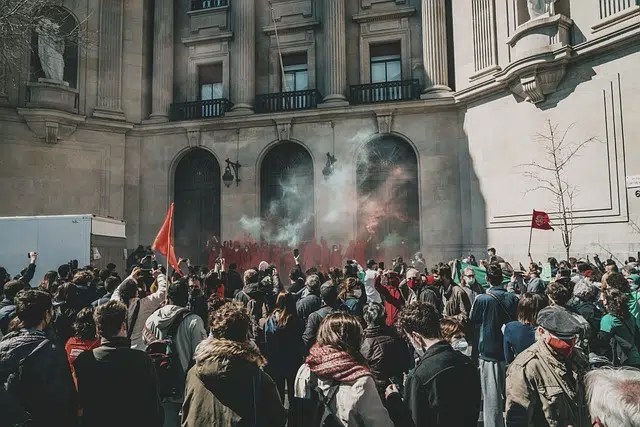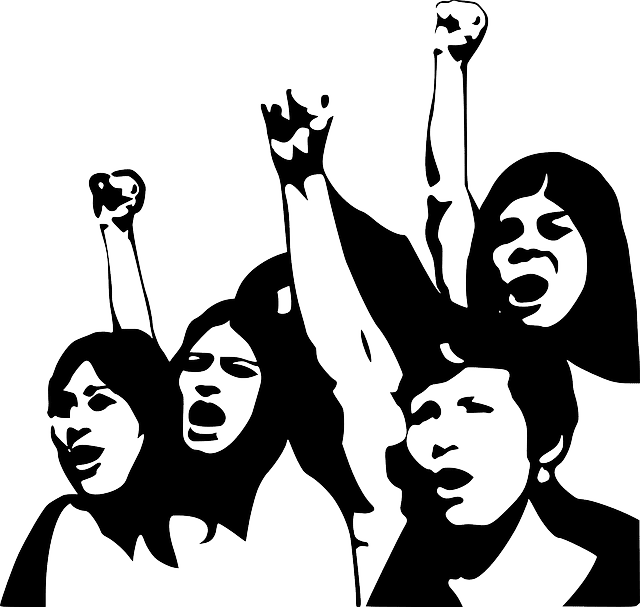
A protest allows a disagreement to be made public.
Protest is the action and effect of protesting (proclaiming or declaring a purpose, impetuously expressing a complaint or disagreement). Protests can be manifested through a march, a demonstration, a public letter, etc.
For example: "The main avenue was closed for eight hours due to a protest by the construction union" , "A student protest ended with a confrontation with the police that left three injured" , "What happened to the customer of table 24? "He just came to the counter to make a protest about the poor service."
Spontaneous or organized protest
The protest can be a spontaneous and informal complaint , expressed out loud: "A lady got angry and her protest was heard throughout the shopping center" , "Please lower your voice, if you want to make a protest you can request the book of complaints .
In other cases, protests become public displays organized by activists or political movements . Protest, in this sense, is a social or political act that seeks to obtain something or modify a certain situation.

The protests aim to achieve change.
The case of Spain
Due to the economic crisis that was being suffered in Spain, as well as the numerous cases of political corruption and also the cuts that the government made in areas such as health and education, countless protests were held in this country in 2011.
Madrid was one of the Spanish cities with the most relevance in terms of protests, with historical moments such as 15-M and then 22-M taking place. The first of them took place on May 15, 2011 and also became known as the indignant movement. It consisted of a citizen action that consisted of camping peacefully for many days in the well-known Puerta del Sol. The objective was none other than to express their rejection of the country's two-party system and also to support the existence of a real democracy.
The 22-M, for its part, took place on March 22, 2014 and was called "March for Dignity." Millions of people, from all over the country, took to the main arteries of Madrid to cry out for the rights that have been curtailed, for the resignation of the government, for justice and for the need to improve working conditions.
Visibility of protests
With the aim of making the protest known to the public, these exhibitions usually take place in emblematic spaces such as avenues, squares or in front of government buildings (the government house, a ministry ). The more people who participate in the protest, the greater the success of the demonstration and, therefore, the greater the possibility that the claim will be addressed.
Marches , strikes , pickets , boycotts , escraches and cacerolazos are forms of protests spread throughout the world.
Another use of the term
In addition to all this, we would have to highlight the existence of another series of expressions or facts that use the term we analyze. This is, for example, the Speyer Protest .
This is a historical document from the 16th century in which various princes and cities were totally against the annulment of religious tolerance carried out by Charles V.
